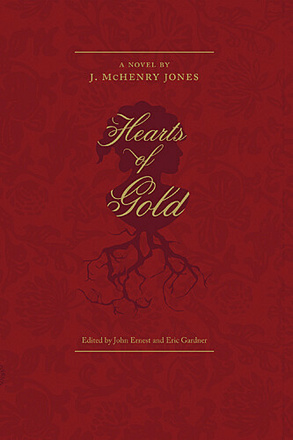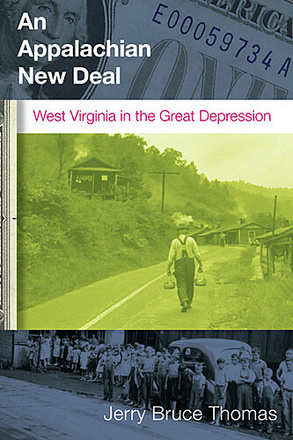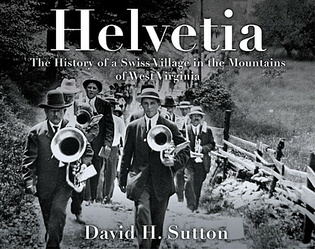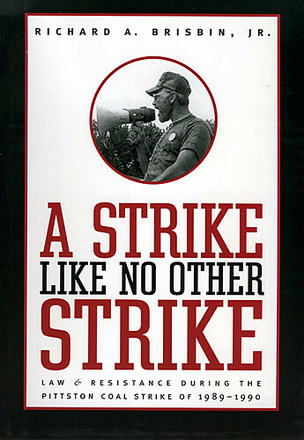
West Virginia University Press is the only university press, and the largest publisher of any kind, in the state of West Virginia. A part of West Virginia University, they publish books and scholarly journals by authors around the world, with a particular emphasis on Appalachian studies, history, higher education, the social sciences, and interdisciplinary books about energy, environment, and resources. They also publish works of fiction and creative nonfiction, and collaborate on innovative digital publications, notably West Virginia History: An Open Access Reader.
THE PALE LIGHT OF SUNSET
SCATTERSHOTS AND HALLUCINATIONS IN AN IMAGINED LIFE
OLD SOUTH, NEW SOUTH, OR DOWN SOUTH?
FLORIDA AND THE MODERN CIVIL RIGHTS MOVEMENT
- Copyright year: 2009
AN APPALACHIAN NEW DEAL
WEST VIRGINIA IN THE GREAT DEPRESSION
In this paperback edition of An Appalachian New Deal: West Virginia in the Great Depression, Jerry Bruce Thomas examines the economic and social conditions of the state of West Virginia before, during, and after the Great Depression. Thomas’s exploration of personal papers by leading political and social figures, newspapers, and the published and unpublished records of federal, state, local, and private agencies, traces a region’s response to an economic depression and a presidential stimulus program. This dissection of federal and state policies implemented under Franklin D. Roosevelt’s New Deal program reveals the impact of poverty upon political, gender, race, and familial relations within the Mountain State—and the entire country. Through An Appalachian New Deal, Thomas documents the stories of ordinary citizens who survived a period of economic crisis and echoes a message from our nation’s past to a new generation enduring financial hardship and uncertainty.
Helvetia
The History of a Swiss Village in the Mountains of West Virginia
- Copyright year: 2010
CROSS AND CRUCIFORM IN THE ANGLO-SAXON WORLD
STUDIES TO HONOR THE MEMORY OF TIMOTHY REUTER
- Copyright year: 2010
PERSPECTIVES ON THE OLD SAXON HELIAND
INTRODUCTORY AND CRITICAL ESSAYS, WITH AN EDITION OF THE LEIPZIG FRAGMENT
A Strike Like No Other Strike
Law and Resistance During the Pittston Coal Strike of 1989-1990
The miners' strike against Pittston Coal in 1989–1990, which spread throughout southwestern Virginia, southern West Virginia, and eastern Kentucky, was one of the most important strikes in the history of American labor, and, as Richard Brisbin observes, "one of the longest and largest incidents of civil disorder and civil disobedience in the United States in the second half of the twentieth century." The company aggressively sought to break the strike, and workers and their families used a variety of tactics—lawful and unlawful—to resist Pittston's efforts as the situation quickly turned ugly.
In A Strike like No Other Strike: Law and Resistance during the Pittston Coal Strike of 1989–1990, Richard Brisbin offers a compelling study of the exercise of political power. In considering the legal significance of the strike, Brisbin asks the larger question of whether even extreme transgression or resistance can fracture the "imagined coherence of the law." He shows how each party in the strike invoked the law to justify its actions while attacking those of the other side as unlawful. In the end, both sides lost; although the U.S. Supreme Court ultimately ruled in favor of the union, most of the strikers faced elimination of their jobs and an ongoing struggle for pensions and health benefits.
- Copyright year: 2010
Roll Out the Carpet
101 Seasons of West Virginia University Basketball
- Copyright year: 2010
Still Life with Plums
Short Stories
- Copyright year: 2010







